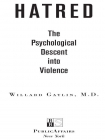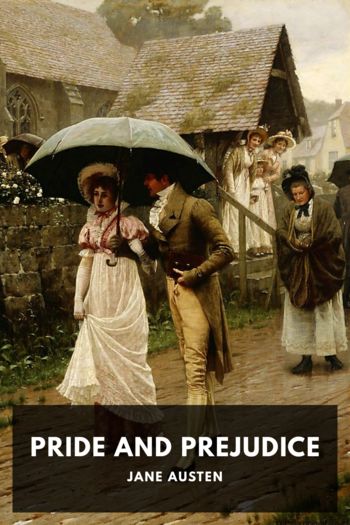Hatred by Willard Gaylin (best manga ereader txt) 📗

- Author: Willard Gaylin
Book online «Hatred by Willard Gaylin (best manga ereader txt) 📗». Author Willard Gaylin
The basic ingredient that defines identification is not the unconscious modeling, but the fusion of the stuff of our very self with the substance of another. Identity starts by knowing the toe we bite is a part of us, and the teething ring or a maternal nipple is something other. With fusion there is an erosion of the rigid boundaries of self, a blurring of the sense of the isolated “I,” or ego.
With upward identification, the child mentally “injests” the image of the parent and then fuses his own sense of self with that now-internalized image of his parent. The parental figure becomes a part of the self. So much a part, that the child, willy-nilly, takes over many of the attitudes and actions of the parent in an unthinking and wholesale manner. This “fusion” of the two identities is what is referred to as identification. Identification blurs the distinction between the perceived self and the incorporated person. It is nonetheless a selective process—there are multiple models we take in. And it is a gradual process, one of which the child is almost totally unaware.
With the downward identification that a parent feels on first seeing her newborn child, the process of fusion tends to be total, instantaneous, and wonderfully conscious. If anything, the confusion about where we end and the child begins is more profound in this direction than the other. With the identification of love, a union occurs that binds one’s fate to another’s. To praise my child offers me praise. To do damage to my child is to injure me and will cause me greater pain than to harm me directly. It may be the greatest pain. The grief over the loss of a child is the open, festering, and agonizing sore of Philoctetes—the wound that never heals.
For some reason, the response to my first grandchild is now more vivid in my memory than the birth of my own children. I had seen this child within an hour of his birth and with that seeing knew, not just understood, the meaning of biological imprinting. His image seemed to course through me like some secret message to an internal computer readjusting all the patterns of my consciousness. To the lifetime of experiences that had shaped my characteristic perceptions and behavior, a new experience had been added of such magnitude that a new sensibility, a changed me, was created. I knew that from that time on, that image was unshakably within me—an essential part of me—and, in some way that I did not yet understand, would inevitably alter, in ways that I could not predict, all my awareness and all my judgments.
What exactly happens in this identification with a child? I did not “swallow up,” introject, this grandchild, or my two daughters before him. I have done the opposite. I had somehow or other catapulted myself into their shells. I have inserted “me” into them. My children are containers, and fragile ones at that, which cradle, not just my hopes and my ambitions, my aspirations and my vanities, but my essential self. They are me. With this kind of identification, we have located our core within another corpus. We have placed our destiny in a body under someone else’s control. If my child does something foolhardy or willfully self-destructive, the pain will be experienced by hapless and innocent me. In great part this explains why no one is as capable of enraging us as our own children. They carry the helpless parent within them during all their reckless escapades. How dare she risk the purpose of my existence, my only immortality, my existential “meaning,” and the person I most cherish, by endangering herself? This explains the evident distress and horror of the mother of the suicide bomber, even as she is claiming pride for his action.
Downward identification has the power and tenacity that one associates with the fixed instincts of animals—biologically driven and species-preserving devices. Unfortunately, in this area too, downward identification can be modified and abandoned through the capacities of the human beings to change their very natures. Fortunately, it generally operates almost universally like a “maternal instinct.” It brings into play all the protective devices in a human mother to preserve her child, and thus the species. One can observe the same kind of behavior in the protective maneuvers of a doe. By protecting her offspring, the mother, animal or human, carries genes forward beyond the limited span of her lifetime. Her child will transport essential components of her self to her own children and the future generations.
These processes of identification are central in comprehending the limits of empathy and the contradictions of the workings of conscience. They help us understand our exquisite sensitivity to the pain of some and our indifference to—even our pleasure in—the pain of some others.
To complete an understanding of the mechanisms of empathy or indifference, I must introduce another principle of identification, particularly relevant to group identifications. I call this “proximal identification.” Proximal identification is not a moral principle but a psychological reality, an indisputable, universal phenomenon. It is best understood by comparing our varying responses to tragic events.
There is no question that an injury to my child, even of a relatively trivial sort, hurts me more than a more serious injury to the child of a stranger. In my sensibilities my child’s pain has a transcendent priority over your child’s pain. I am not pleased or proud of this observation—it represents a limit on my capacity for empathy—but I





Comments (0)